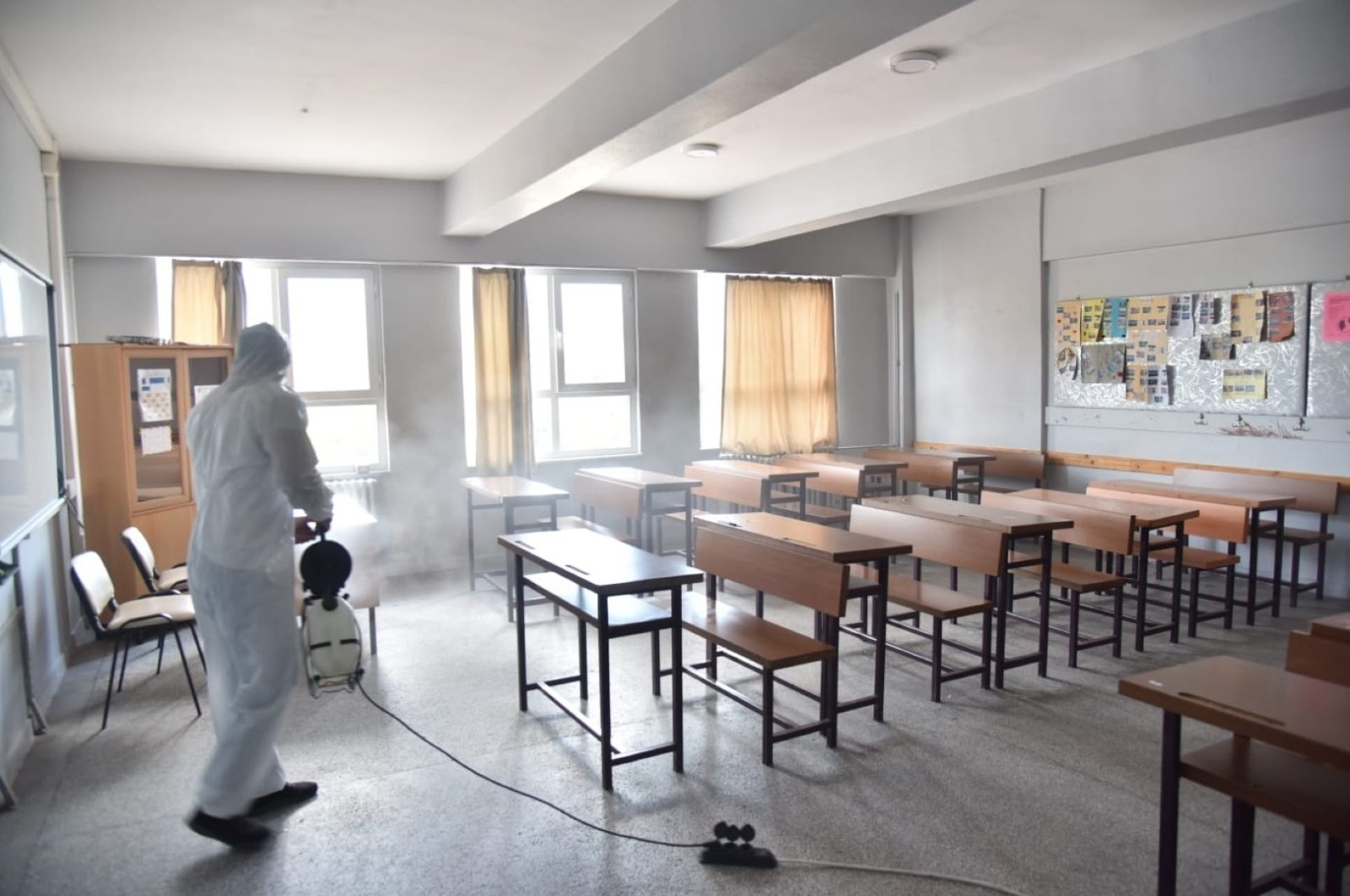The countdown is on for September 6, which would mark Turkey’s first day of in-person education in many months amid the coronavirus pandemic. A new set of guidelines by the government recommends vaccination for everyone involved in education, from parents to teachers
The government on Tuesday issued new guidelines for local education authorities for the start of in-person education next month. The guidelines recommend full vaccination (two doses) for parents, teachers, education staff, school bus drivers and canteen employees.
In-person education hit a snag both last year and this year due to the pandemic, which forced authorities to switch initially to remote classes and later to a hybrid education model with online classes and in-person classes offered together. The government announced last week that the schools would open only with in-person education on September 6. Though daily coronavirus cases are still high (around 18,000), Turkey is relying on its vaccination program to stave off a new surge.
Earlier, authorities announced that the teachers and other staff at schools would be required to regularly provide negative polymerase chain reaction (PCR) test results in order to attend in-person education. The same will apply to the unvaccinated for inter-city bus travel, flights and attendance to crowded events in cinemas, concert halls and theaters.
Under new guidelines, teachers and other staff at schools will be required to present negative test results twice a week. All schools will be required to store sufficient protective masks for everyone, from students to teachers. Masks will be provided by the Ministry of National Education. Schools have also been instructed to properly dispose of used masks.
The Ministry of National Education and the Health Ministry will set up a “data integration system” to track the health status of teachers and students. That is intended to facilitate contact tracing if necessary. The education staff will be trained on infection control before the start of the new school year.
All students will be required to wear masks to school, but children with developmental problems and other conditions that make wearing masks difficult for them will be exempted or be required to don protective face gear like face shields. They will be provided with backup masks at schools. Masks and face shields will be required to be used at the same time in situations requiring close contact.
Teachers will be obliged to wear masks all the time while at school or in the recess area. They will be required to change masks if they teach to different student groups on the same day. Time for school lunches and other meals will be limited.
Parents of visitors will not be allowed to enter inside the school building in most cases, and they would be required to wear masks at all times if they are allowed in exceptional cases.
Classrooms will be properly ventilated and students will be instructed to spend more time outdoors during breaks between classes. While outside the building, students, teachers and other staff will be required to ensure social distancing and not to “make crowds.” Class hours will be arranged so as not to allow a large number of students to be present at school at the same time. The average length of a class will not exceed 40 minutes. Musical activities will be subject to social distancing rules.
Schools will be required to increase the times of general cleaning while hand sanitizers will be placed in common areas.
Professor Selma Metintaş, a member of the Health Ministry’s Coronavirus Scientific Advisory Board, says remote education is not “sustainable” and in-person education should resume after vaccination of all people involved, from teachers to students’ parents. “We have to trust in the facts provided by scientific studies and reopen schools as soon as possible,” Metintaş told Ihlas News Agency (IHA) on Tuesday. “Education is the most basic need of people, as vital as food. It plays an important role in the development of children. For more than one year, remote education tried to fill the gap, but schools are more than that. For children, it is the second most important place for socialization after home,” she noted.
“Certainly, there is a risk in the resumption of in-person education. But it will be impossible to ensure safe circumstances at all any time soon. What we know that remote education is not sustainable, especially for middle and low income households,” she said.
Metintaş called upon the public to exert efforts for safe in-person education. “As the Health Ministry advised, everyone should get vaccinated, stay away from crowds and wear protective masks. Keep yourself away from others until you get negative results if you are tested,” she said.
Vaccination is instrumental for a return to pre-pandemic life in the country that reported its first case in March 2020. Throughout its vaccination program, which began in January 2021, the country has so far managed to administer more than 90 million doses. More than 35.5 million people have received both doses and are thus considered fully vaccinated. Turkey ranks eighth in the number of total vaccinations according to the website ourworldindata.org.










Discussion about this post